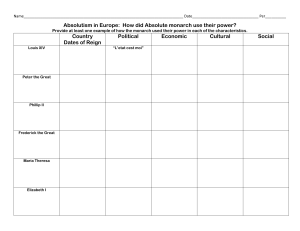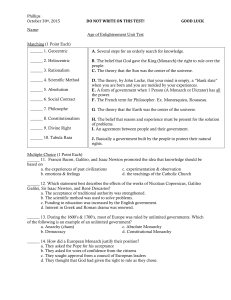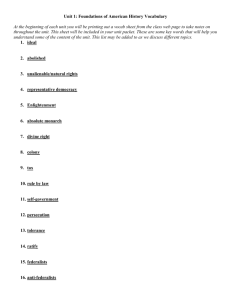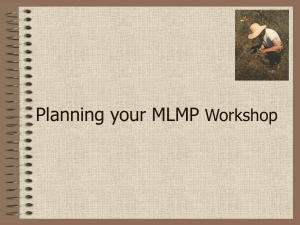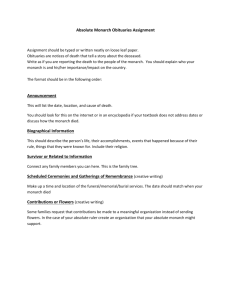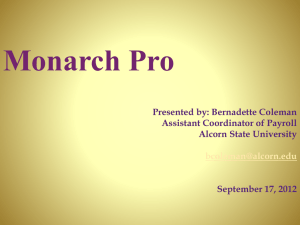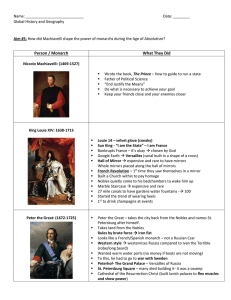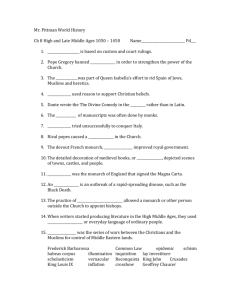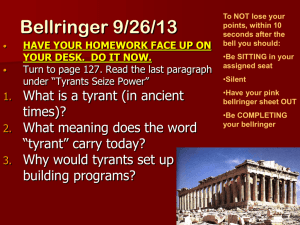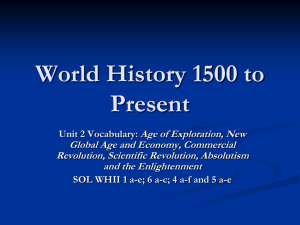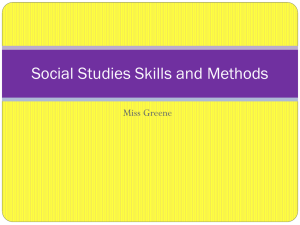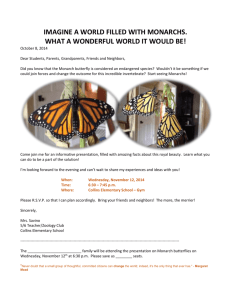Raelene Wickline I-Search Enlightenment
advertisement
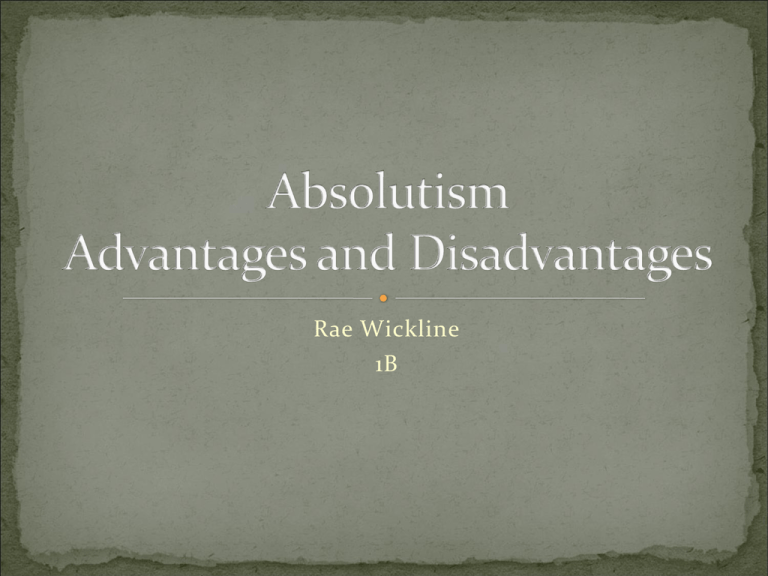
Rae Wickline 1B Pass needed acts to better control the state Could create helpful alliances with other countries Could create political and trading alliances with their marriages Gives land to soldiers for loyalty to the monarch or for a victory in a major battle Could grant the money for exploration of unknown places Create colonies to further spread the country’s power Could choose the religion that the state had to follow _ Catholic vs. Protestant Only one person with all the power Greed, corruption, and favoritism shown Could imprison someone with no need of it being legally correct Unfair taxes on the lower classes, giving nobles the least to pay Always had to have a close, trusted friend in the court of the monarch Had to have some time yourself spent at court showing your loyalty toward the monarch The monarch could show favoritism toward some nobles Unfair in ruling the state Natural human rights- Have the right to freedom of speech Equality– Widely believed in, Sparked both the American and French revolutions Freedom of religion Logical explanation for something once believed to be god Church thought that these ideas were heresy, meaning the church could excommunicate, torture, jail or even executed the “heretics” John Locke’s Two Treaties of Government- Gives the ideas of self government and Power from the people Voltaire’s Candid- influenced the U.S. Constitutionfreedom of speech, freedom of religious beliefs Jean Jacques Rousseau’s Social Contract- Gave the idea of voting Baron de Montesquieu’s Of the Spirit of Laws- his ideas were the main basis of the Constitution Denis Diderot’s encyclopedia- made other’s articles and essays available to the public therefore spreading the Enlightenment’s idea faster Sir Isaac Newton- developed the laws of motion, explaining that all motion can be measured and defined, invented the reflection telescope Galileo - improved the telescope, proving that Copernicus was indeed correct to state that the sun was the center of our universe Francis Bacon and Rene Descartes develop the scientific method Science disproved that alchemy could turn non precious metals into gold Robert Boyle- found the differences between the elements and the chemical compounds that make the elements up Sir Isaac Newton- created calculus, binomial theorem, made a systematic way of integrating algebra into geometry Mary Wollstonecraft- an author that was a head of her time. She wrote that women need an education to be useful in society just like men Before the Enlightenment the style was very ornate and grand but with the changing of times people fell back on the classical look, elegant, and harmonious Painted by Johannes de Eyck, Painted by Joshua Reynolds, Arnolfini and his wife, c. 15th century Duchess of Bedford, 1756
